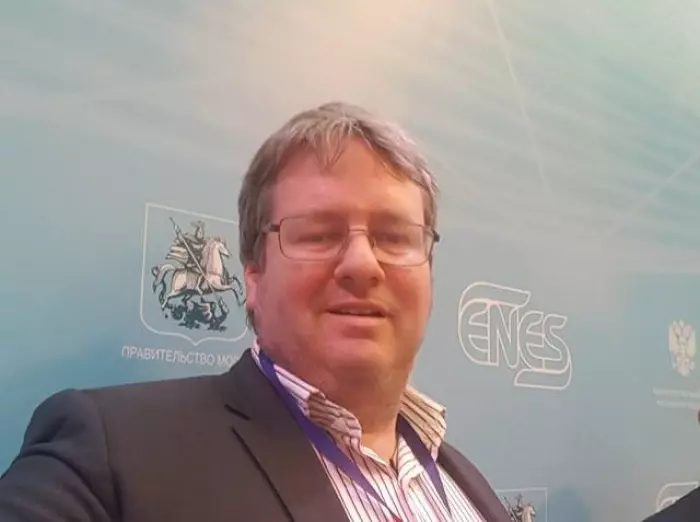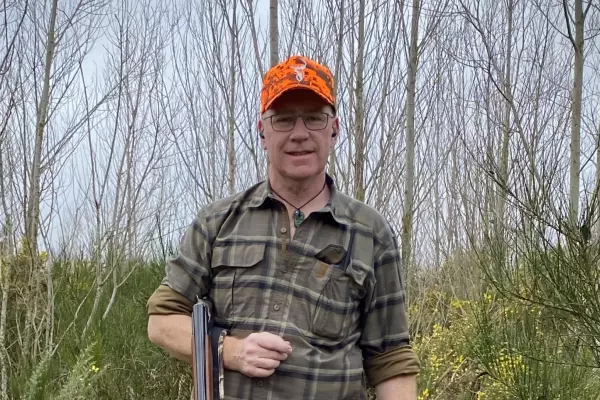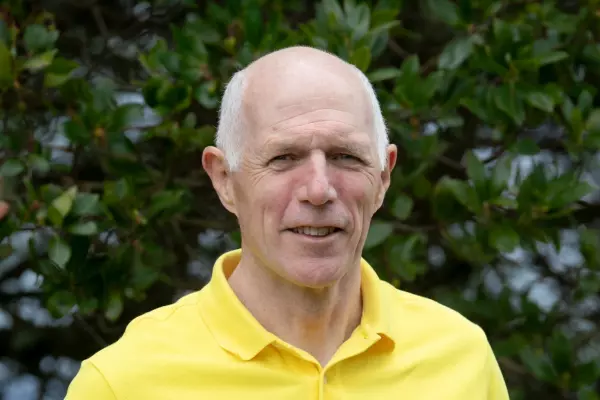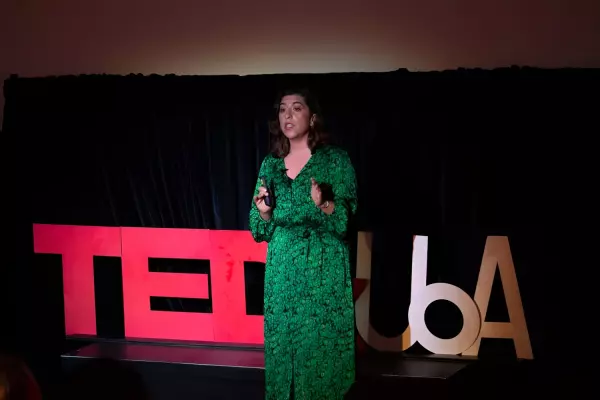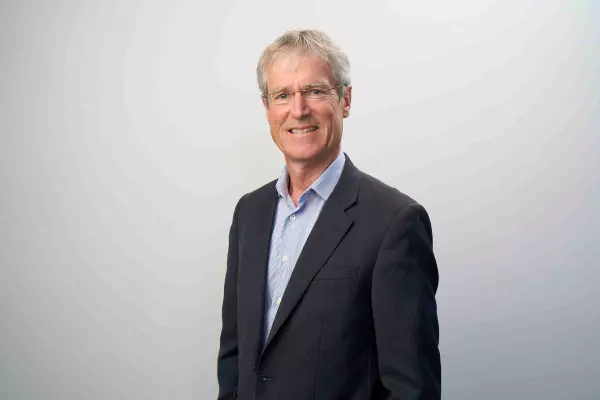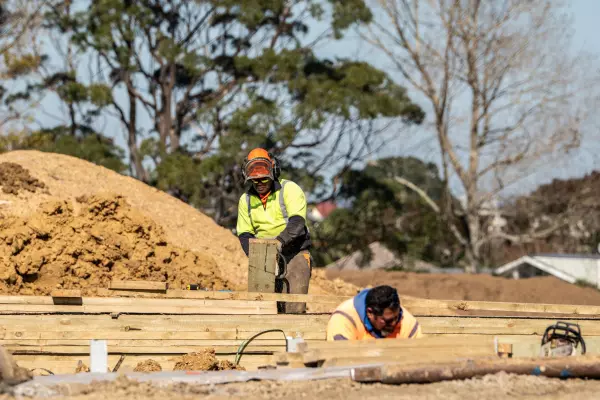He's frustrated, tired, yet somehow still determined to fight for justice.
John O’Brien, the son of a former and highly respected New Zealand ambassador to the United Nations, has spent the past five years trying to expose corruption and fraud within the UN Development Programme (UNDP), where he worked as a technical adviser on climate change mitigation.
To add injury to insult, the NZ citizen and former employee-turned-whistleblower ended up being fired from his coveted job at the UNDP in April this year "after more than four years of bad faith investigations".
Meanwhile, the very people whose alleged wrongdoings he had reported within the highly regarded global organisation went unpunished.
O’Brien, whose father Terence O’Brien worked as a diplomat for the Ministry of Foreign Affairs and Trade (MFAT) from 1959 to 2001 and chaired the UN Security Council during the Srebrenica massacre in 1995, alleged his employment with the UNDP was terminated within days of the organisation finding out he was one of several UN whistleblowers taking part in a recently aired BBC documentary.
The whistleblowers who were interviewed for the documentary – released in June this year and entitled The Whistleblowers: Inside the UN – painted a horrific picture of a toxic culture within the confines of an organisation that’s meant to be almost saintly, following its creation in the aftermath of the second world war.
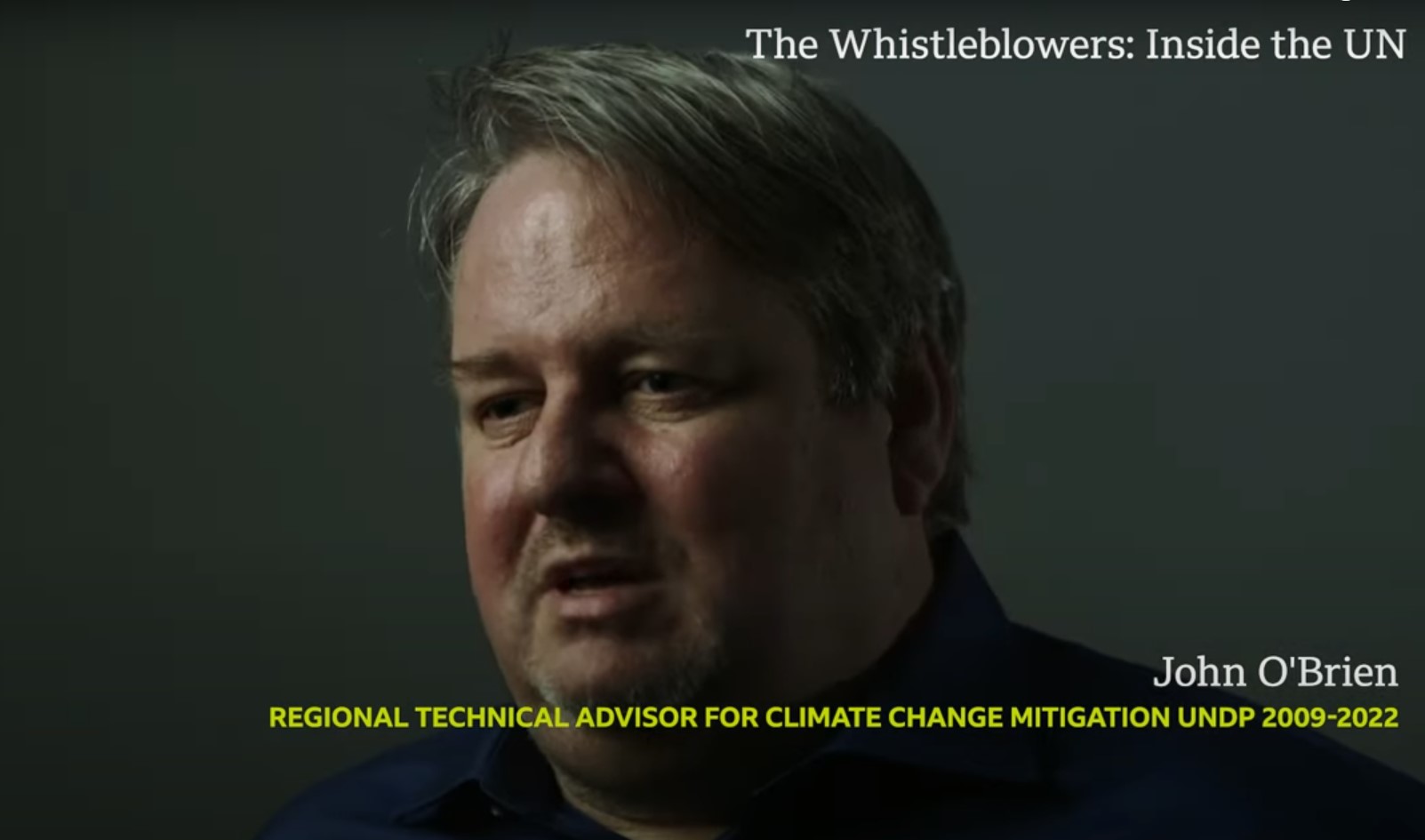 A screenshot from the BBC documentary released in June this year.
A screenshot from the BBC documentary released in June this year.O’Brien may be the only New Zealander who's made allegations against the UNDP, but he believes that he's one of many whistleblowers who've been systematically targeted in an attempt to drown out their cries of wrongdoing within the UN.
Now back in NZ, he’s repeatedly fired off letters, emails and phone calls to try to get government backing for his fight, without success.
MFAT made it clear to BusinessDesk that the “New Zealand government does not involve itself in New Zealanders’ employment disputes abroad”.
A spokesperson for MFAT said: “We cannot ascertain the full facts of such cases and it is not a consular service we offer.”
Official information Act investigation
However, BusinessDesk obtained various emails between government officials and MFAT via an Official Information Act (OIA) request that revealed the NZ government did, in fact, withhold $3 million in funding from the UNDP between 2020 and 2021. NZ currently gives the UNDP about $8m in funding each year.
“This decision was not made public but was a signal to UNDP of the strength of Aotearoa New Zealand’s commitment on the matter,” the OIA said.
This is contradictory to documents obtained via an OIA by Newsroom in an article in 2019 wherein MFAT briefed then foreign affairs minister Winston Peters in February 2019 about O’Brien’s claims.
The briefing document stated, “given the project and the office in question are already closed, and New Zealand had no specific interest in them, we consider a detailed re-investigation by New Zealand would be of limited benefit”.
According to officials, the allegations didn't contain enough evidence to withhold NZ’s $8m in annual funding (in 2019) as there were no “systemic concerns with UNDP audit processes”.
However, about a year later, something changed as NZ ended up withholding $3m in funding, according to the OIA documents.
'Lie and lie and lie'
The fact the NZ government refused to aid O’Brien but withheld funding following his allegations came as a huge surprise to him.
“New Zealand is pretending to take this seriously, but in reality, they are not. Why is New Zealand allowing UNDP to lie and lie and lie when there is a clear case in a public report that my whistleblower case was mishandled by UNDP with follow-on recommendations that I believe have been completely ignored by the UNDP,” said O’Brien.
He alleged that as a "direct result" of this, the people he believed to have been involved "are all being protected by UNDP, which is a very serious accusation".
O'Brien was adamant in his belief that nobody lost their job because of the alleged corruption and fraud.
The review in question is related to O’Brien’s repeated requests and subsequent appeal for a thorough investigation into the financial mismanagement, corruption, fraud and interference with internal audit processes in relation to the UNDP’s Standards and Labels (S&L) project in Russia, which ended in 2017.
According to the OIA, NZ didn’t “directly fund the S&L project” but “given our broader financial support to UNDP and the GEF [Global Environment Facility], MFAT worked bilaterally and with other donors to ensure UNDP undertook a comprehensive investigation and addressed the governance and systemic issues identified”.
MFAT said the UNDP's Office of Audit and Investigation (OAI) concluded in December 2020 that “UNDP's management of the project had been inadequate and potential misconduct merited further investigation”.
A series of additional reviews and recommended remedial actions have since been completed and implemented by the UNDP and others.
However, according to O’Brien, the remedial actions have not been implemented because the accountability and whistleblower recommendations of the Russian independent review have all allegedly been ignored.
In his view, “you simply cannot have reform when there is no accountability”, he said.
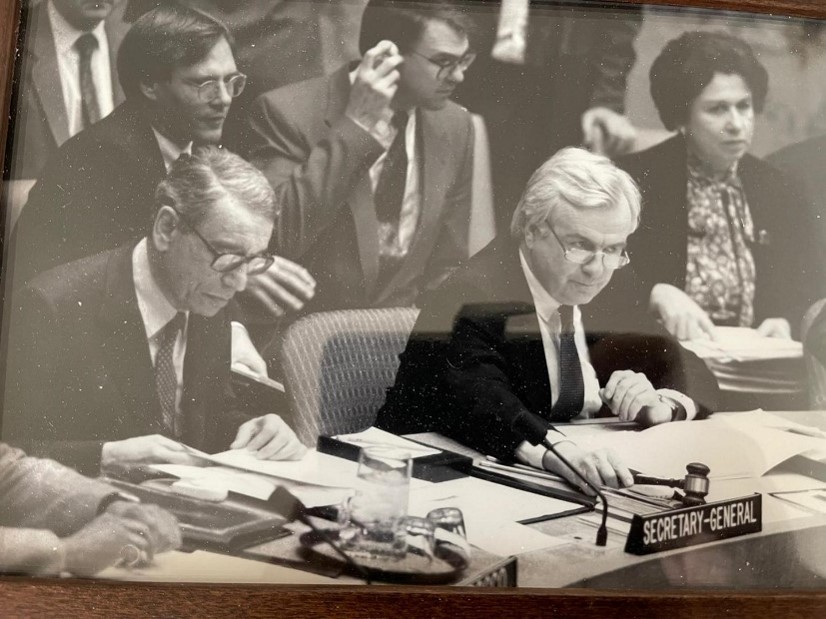 Former New Zealand ambassador to the UN, Terence O’Brien, chairing the UN Security Council in 1993.
Former New Zealand ambassador to the UN, Terence O’Brien, chairing the UN Security Council in 1993.MFAT stated in the OIA documents it would closely monitor the “independent reviews of UNDP’s work and consider UNDP is taking appropriate remedial actions in response to the findings and recommendations”.
“We will continue to follow and assure ourselves of UNDP’s progress in sustaining these changes.”
The minister of foreign affairs (MFA), Nanaia Mahuta, was briefed on O'Brien's allegations last year in a series of emails. In them, it said, "the coverage of this issue so far has been at R level [restricted], given the sensitivity of the issues involved".
"The paper was to ensure the Office [Mahuta's] is sighted on a situation that may move quickly if media interests revives..."
Another email stated, "given the profile of the case, we wanted to ensure MFA was informed of developments and had media lines ready if necessary".
Despite this, Mahuta declined to comment. Her spokesperson referred BusinessDesk back to MFAT aside from saying that Mahuta "has already exchanged correspondence with Mr O’Brien, in late 2021".
MFAT told BusinessDesk it eventually released the withheld funds because it was satisfied with the outcome of internal reviews.
O’Brien, in turn, said it's "very hard to understand how this is a satisfactory outcome for New Zealand or, indeed, for any donor".
“The culture has not changed at UNDP," he said, adding that he believes it's a culture of fear where staff are scared to report wrongdoing.
"There is a view that two Russia investigations and my investigations were all subject to bias, incompetence, and management interference," said O'Brien. “And absolutely nothing has been done about it.”
Meanwhile, the Netherlands withheld €10m (NZ$16.3m) from its 2020 funding to the UNDP, while Switzerland imposed certain conditions on its 2021 funding, which meant NZ wasn't the only country concerned about the ongoing allegations.
‘It’s a joke’
One of O’Brien’s biggest gripes, however, has been what he considered to be the “total lack of accountability at UNDP and in the top management".
The current UNDP administrator is Achim Steiner, who replaced Helen Clark as administrator in 2017.
According to O'Brien, members of the UNDP’s senior management are allowed to do whatever they like and are accountable to nobody. He disputes that any of the implemented reviews, as stated by MFAT, were done properly.
“They lie to donors when they say they implemented accountability and whistleblower recommendations of the Russia Independent Review, and are allowed to get away with it.
“Does anybody actually care that so much of the money is either stolen or wasted?”
O'Brien claimed the top UNDP management, after Clark's tenure, admitted they completely “screwed up”, but that the only people who lost their jobs were the whistleblowers.
“It is a joke,” he said.
The UN’s assistant general secretary, Martha Helena Lopez, on behalf of UN general secretary António Guterres, acknowledged in a letter dated July 6, 2022, seen by BusinessDesk, that O’Brien’s “request for whistleblower protection was not handled properly”.
However, he has repeatedly been redirected back to the UNDP, the very organisation he’s trying to expose, to investigate his claims.
“As you are aware, addressing issues of retaliation and whistleblower protection involving UNDP staff has been delegated to UNDP, and is to be handled under the policy framework of UNDP,” Lopez wrote in the letter.
This is one of the major flaws of this investigation and subsequent reviews because it’s been conducted internally – and self-regulation does not work, according to O’Brien.
“This is UNDP investigating UNDP.
"You simply cannot ask the OAI to investigate itself and ask whether its own investigations were interfered with which was, of course, a main conclusion of the Russia Independent Review, something that UNDP has simply ignored," he said.
However, UN general secretary Guterres appears to have conceded this and said he's open to an external review to combat misconduct of any kind.
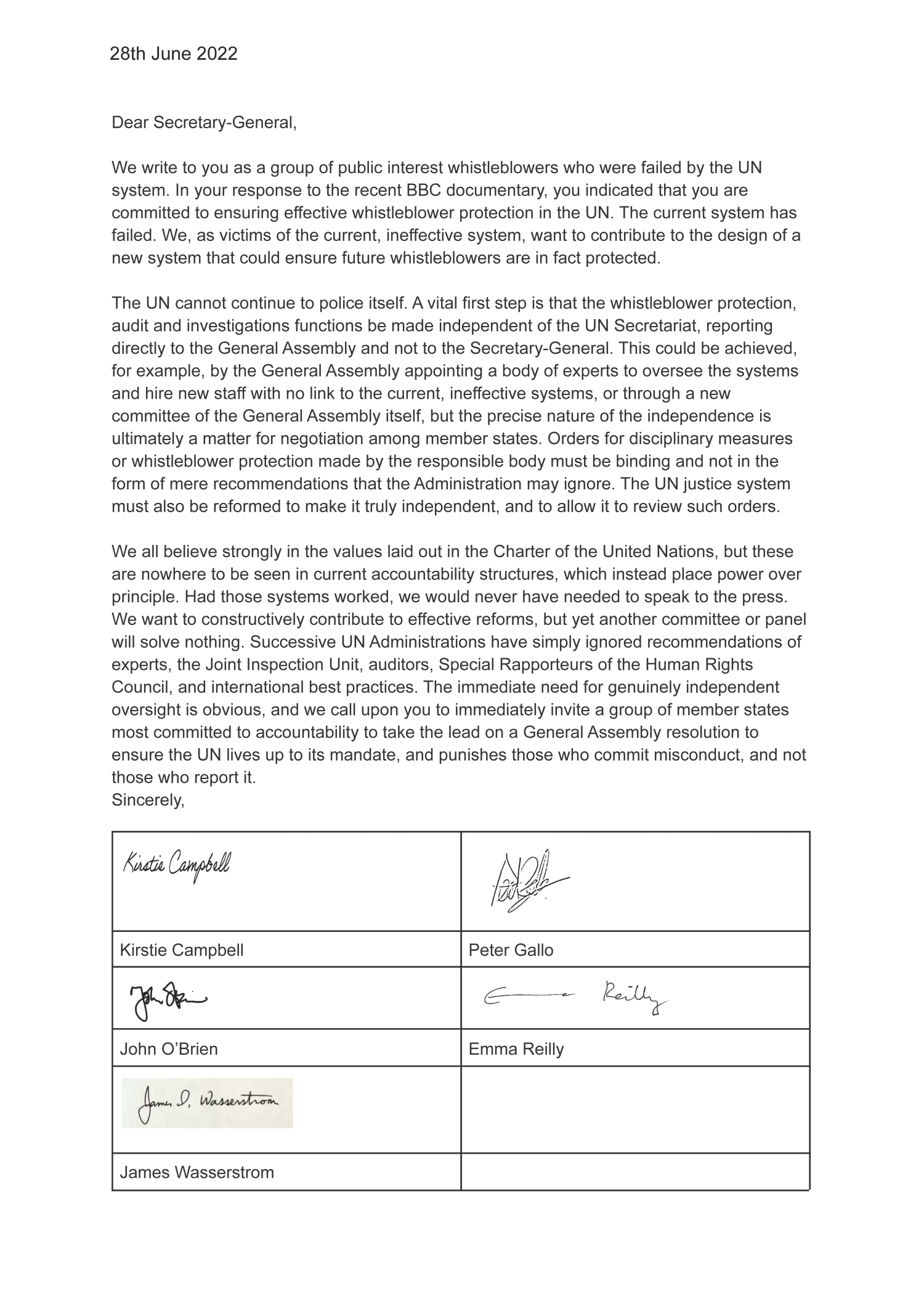
A letter dated June 28 was sent to Guterres from several “public interest whistleblowers who were failed by the UN system”. In the letter, they offered to contribute to the design of a new system that could “ensure future whistleblowers are in fact protected”.
It said: “The UN cannot continue to police itself.
“We all believe strongly in the values laid out in the Charter of the United Nations, but these are nowhere to be seen in current accountability structures, which instead place power over principle.
“Had those systems worked, we would never have needed to speak to the press,” they wrote.
Russia
Around the same time as the UNDP’s Standards and Labels programme ended in 2017, former NZ prime minister Helen Clark’s tenure as the head of the UNDP concluded.
O’Brien confirmed to BusinessDesk that Clark, who he’s met with on several occasions, was unaware of the allegations while she oversaw the organisation.
However, Dmitry Ershov, another UN whistleblower, claimed he had contacted Clark while she was still the UNDP administrator but that she never responded. Ershov was hired to manage the S&L project. BusinessDesk approached Ershov for comment.
Clark previously told Newsroom in 2019 that she had “no recollection of being aware of these allegations while at UNDP". She claimed that emails sent to her formal UNDP address were handled by her staff and were forwarded to others within the organisation to investigate the claims.
Around the time her tenure as administrator of the UNDP ended, Clark was aiming for the much-coveted job of secretary general of the UN, which included currying favour with the Russians and other countries.
BusinessDesk asked for an interview with Clark but was told she was “travelling at the moment” and instead, a spokesman who said he was “just helping out my old boss”, said she “was not aware of the allegations concerning UNDP Russia when she was administrator”.
“When she was a candidate for the UN secretary general role, she openly sought the support of every member country of the Security Council [including Russia]. She left her UNDP role over five years ago,” the spokesperson confirmed. “She has no further comment other than the allegations concerning Helen Clark are completely without foundation and defamatory in nature.”
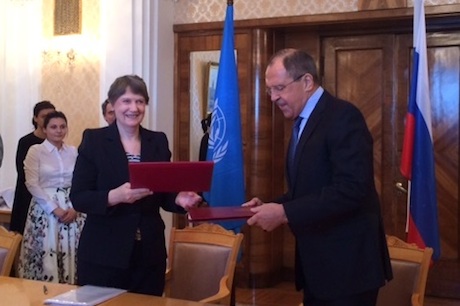 Russia's minister of foreign affairs, Sergei Lavrov, and then-UNDP administrator Helen Clark sign a funding agreement in 2015.
Russia's minister of foreign affairs, Sergei Lavrov, and then-UNDP administrator Helen Clark sign a funding agreement in 2015.
Despite O’Brien’s ongoing struggles, Clark has to date not given him any public support. Her stature would carry a lot of weight in the matter.
It also appears that Russia’s illegal war on Ukraine has not stopped the UNDP from accepting money for projects because, according to PassBlue, an independent women-led media agency monitoring the UN, Russia is currently funding four UNDP projects following its invasion of Ukraine in February this year.
Protection
Julie Haggie, chief executive of Transparency International NZ, told BusinessDesk that all organisations need to be accountable for their actions in relation to whistleblowing.
“It is an indictment of any organisation when it penalises people for speaking out or penalises them as part of the process of investigation.
"Those who speak up should be fully supported so they do not face retribution or negative consequences.
“How the UN as a whole addresses corruption and whistleblowing is fundamental to the level of public trust that others give it,” she said.
Meanwhile, the Whistleblowing International Network (WIN)’s executive director, Anna Myers, told BusinessDesk she is concerned about the continuing failure to protect and retain UN staff who report wrongdoing.
“When whistleblowers end up fighting for their professional survival first within their workplace and then within a complicated dispute system that is stacked against them, it seriously undermines trust and confidence in the institution and damages the very vulnerable people the UN was set up to protect,” she said.
Myers said the NZ government should have a particular interest in O’Brien’s case because “John is a New Zealander who has suffered for doing the right thing”. Asked whether the UN has become a toothless and outdated organisation, Myers said “the United Nations was born out of crisis and must now respond to multiple crises around the world that are having a global effect”.
“The UN is not a toothless organisation by any means, but it has yet to get to grips with how to properly value whistleblowers who raise concerns about wrongdoing and to fearlessly address the wrongdoing they find.”
Myers said making serious and credible reforms at the UN won’t be easy. Still, the premise is a simple one: “whistleblower protection is about ensuring the free flow of information for institutional accountability”.
“If we can get leadership by someone at the UN who can drive through a reform agenda on that basis – it will be a success. We stand ready to help in any way we can,” she said.
The National party’s spokesperson for foreign affairs, Gerry Brownlee, was approached for comment and said via his press secretary that “we will have to politely decline providing comment this time”.
The UNDP
A UNDP spokesperson told BusinessDesk that Amitav Rath conducted an independent review on the S&L project that ran from 2007 until 2017.
"Records show that it was problematic from its inception and did not meet the standards we expect. We have openly acknowledged this point," the spokesperson said.
They said the project was subjected to various assessments, audits and investigations and that, as a result, actions were taken accordingly.
"UNDP has demonstrated full and unreserved determination to address accountability and systemic issues that needed attention, and there has been a robust response by management to address these shortcomings."
However, when pressed about what actions were taken against those who were found to have stepped over the line, the UNDP spokesperson refused to answer, citing confidentiality concerns.
"We have done everything we could, within our management responsibilities and our rules and regulations, to establish individual accountabilities and take appropriate measures in response.
"To protect their right to confidentiality, it is not appropriate for us to comment in detail on the nature of the actions taken in relation to other people involved in the S&L project at this time," the spokesperson said.
UNDP acknowledged that O'Brien "did the right thing in raising concerns" but denied he was fired in retaliation by quoting Rath's report, which says there is “no evidence that the UNDP undertook any punishments or retaliatory actions against either individual for having blown the whistle".
Although the UNDP didn't say it, allegations of sexual impropriety were made against O'Brien in 2018 – soon after he blew the whistle on the corruption – that he was seen watching "sexually explicit material" on his mobile during a workshop in Paris.
O'Brien has denied these allegations and maintains that it was fabricated in an attempt to try to discredit him. He has appealed the decision.
The spokesperson said of the accusations that resulted in O’Brien’s dismissal, "Mr O’Brien’s involvement in the BBC documentary and his dismissal are unrelated. Mr O’Brien was dismissed as the result of an investigation into allegations of serious misconduct.
"It is not appropriate for us to comment at this time on the nature".
"These were described in detail in a 15-page decision letter that Mr O’Brien received earlier this year."
The future
O’Brien has recently been appointed as a special officer for UN reform to the UN Association of NZ.
For O’Brien, who often questions whether the past five years have been worth it, his fight will continue to the bitter end, with or without the support of his country and those who have the power to force change within the hallowed halls of the UN.
“I am like a guy with the small hammer tapping away at the Hoover dam," said O'Brien, "and while it may take time, one day that dam is going to break."


